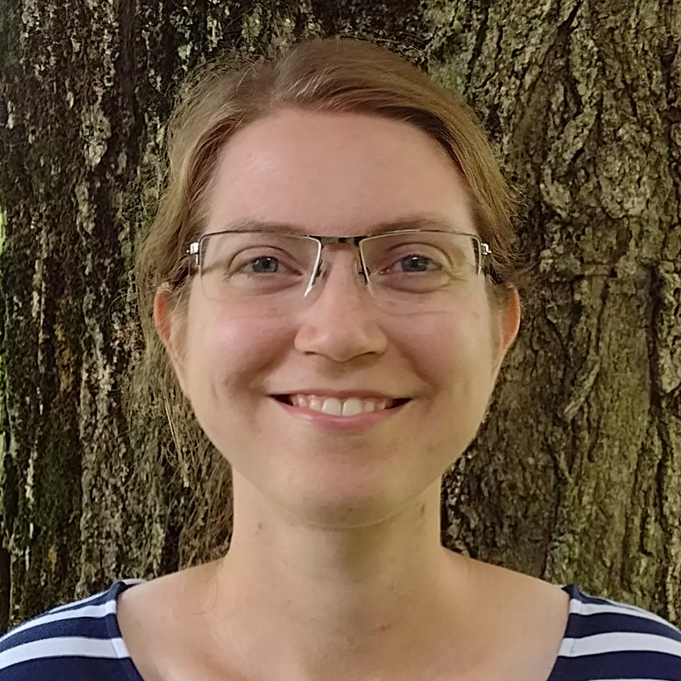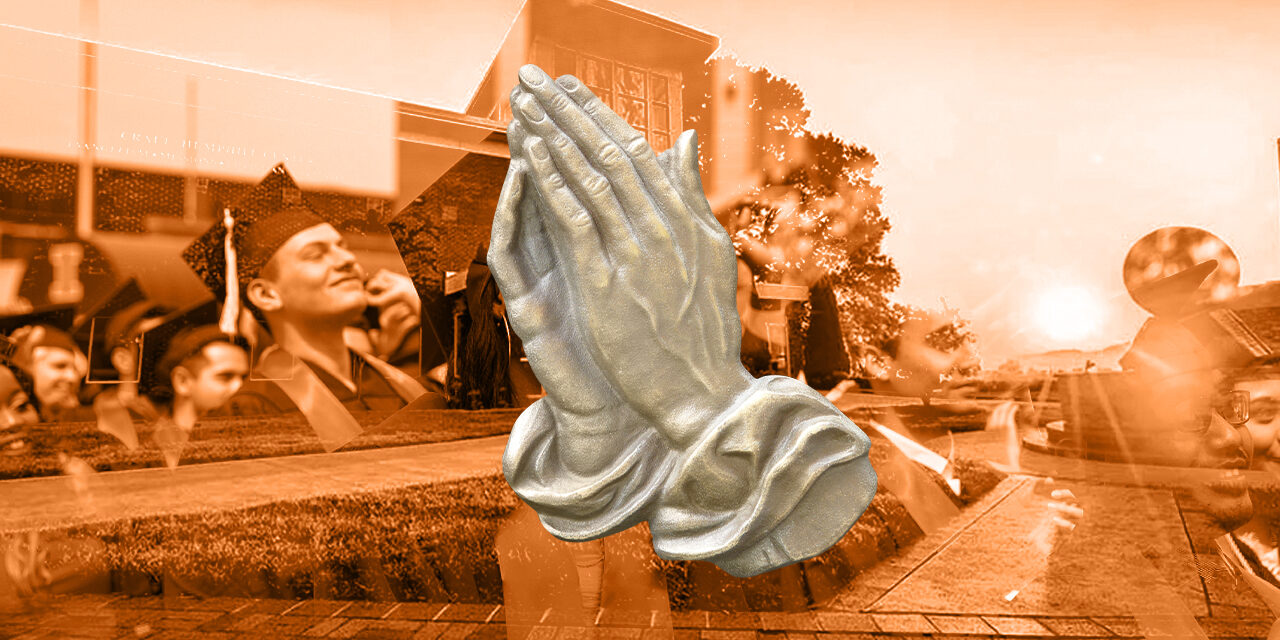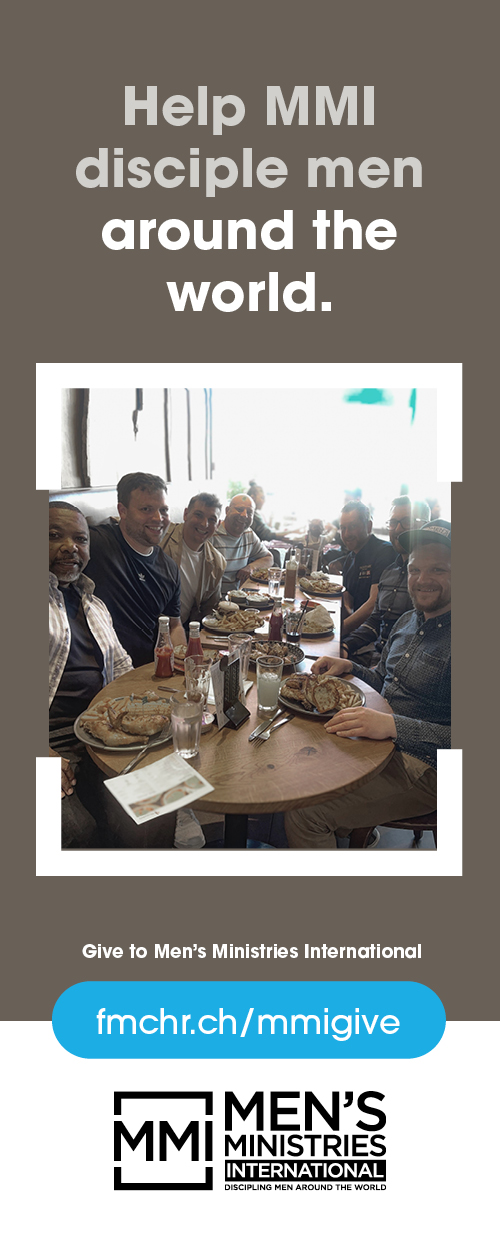
Jill Carr
Jill Carr is a Greenville University senior serving a summer internship with Light + Life. She is an English major with a Spanish minor. She grew up in rural Illinois between the small towns of El Paso and Gridley. Along with writing, her other creative pursuits include art, illustration and practical crafts.
By Jill Carr
Thank you for praying for college and university students. Being prayed for is both humbling and comforting. It is also powerful.
When I considered how to describe my experiences to those who are praying for students like me, I was reminded of 2 Corinthians 1:11. Paul weaves gratitude for the prayers of his fellow believers seamlessly into his praises to God. I’m not an apostle, or even called to the ministry like some of my classmates, but I can join with Paul in thanking God for answers “to the prayers of many.”
I transferred to Greenville University (GU) from a secular community college. I share this fact for context, but my point isn’t to criticize that community college. The college helped me come to a place where I truly wanted to learn in an environment where my faith was welcomed and even nourished. Yet I was also a little skeptical whether a Christian institution would be all that different. In some ways, it isn’t. I see all the usual hallmarks of the ups and downs that students experience while becoming more independent and responsible for their own decisions. There are still angst, emotions and peer pressure.
_
“I watched to see if this was merely the required appearance of Christianity or the outflow of genuine faith.”
_
Yet it shocked and impressed me that the first class I took at GU began with my professor praying. I watched to see if this was merely the required appearance of Christianity or the outflow of genuine faith. Over time I’ve found that faith at GU is indeed a matter of conviction. It is neither forced nor banned, but openly sought and upheld. My classmates come from all sorts of backgrounds, both Christian and non-Christian. There are plenty of disagreements over the “Lifestyle Statement” and “Code of Conduct.” But one thing is clear, love it or hate it, student life on GU’s campus is different.
I say love it or hate it because that difference often clashes with our culture. There are many ways that plays out, but it can clearly be felt on questions of sexuality. The traditional Christian claim that God decides what are acceptable and unacceptable expressions of sexuality is a direct affront to a culture claiming that the individual’s desires are the ultimate measuring line. We are in constant need of prayer to respond with both Christ’s conviction and His love. Sadly, I’ve seen individuals on either side of the question ready to belittle and write off those who disagree with them. But thankfully I also see those who are willing to stop, listen and respectfully disagree as necessary.
And I genuinely believe that GU tries to facilitate that sort of Christlike interaction. One of GU’s often-repeated principles is how important building a community is to the campus. Like any ideal, it can be overemphasized, and I’ve heard my share of grouching about it, but there is undeniable truth to it too. I’ve seen so many people — whether they are fellow students, staff members or faculty — reaching out and working to create opportunities for dialogue about important and controversial topics.
As COVID restrictions have lessened in our state, GU has been able to allow more group activities outside of the classroom. I’ve been able to go on field trips to experience other cultures. I have listened to guest speakers and discussion panels address topics ranging from social justice to racism to vaccines. Student government leaders and student senators play roles in giving us a voice about what skills are truly needed for success after graduation.
I’m entering my senior year this semester, and graduation is shifting from a distant goal to a current consideration. Just from listening to those from older generations, I think the American economy and workforce were undergoing significant changes even before the seismic impact of COVID. I don’t know how those changes are going to play out. What I can say is that I still believe that transferring to a Christian university, in the midst of a pandemic, has been entirely worth it for me.
_
“I was not looking for inclusivity or exclusivity over a set of rules, but for people dedicating their lives to the love and truth of Christ.”
_
Beyond the practical challenges, the overarching concern I have for the future of Christian higher education is the question of what makes a Christian institution different from a secular one. GU’s beliefs may clash with our culture, but I transferred here precisely because I wanted something I could not find at a secular university. I was not looking for inclusivity or exclusivity over a set of rules, but for people dedicating their lives to the love and truth of Christ.
My continual prayer is for our university leadership, faculty and staff because they are the people who are the most visible. These are the people who interact with students on a daily basis, whose decisions affect us, whose teaching informs our critical thinking, and who represent what Christian life looks like in practical terms. I know they are under constant pressure from so many different directions.
As for myself and my fellow students, my own prayer is that our time in college or university would form us into people whose lives are marked by the same attitude that Paul describes later on in 2 Corinthians — that we are compelled to be different only because of Christ’s love (5:13-15).+

Jill Carr
Jill Carr is a Greenville University senior serving a summer internship with Light + Life. She is an English major with a Spanish minor. She grew up in rural Illinois between the small towns of El Paso and Gridley. Along with writing, her other creative pursuits include art, illustration and practical crafts.









